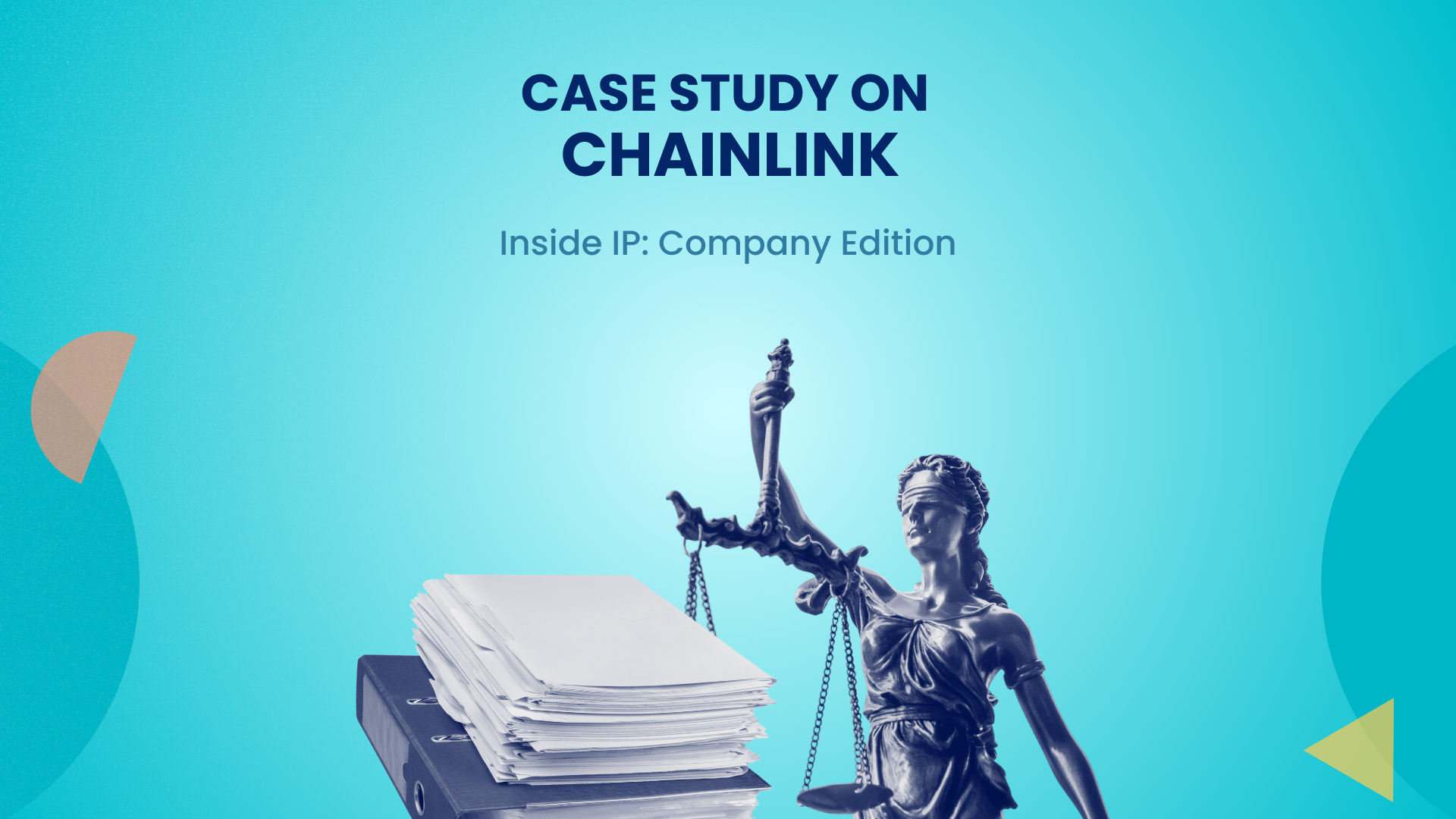In the rapidly evolving landscape of Web3, where decentralized applications and smart contracts form the bedrock of future digital economies, foundational infrastructure plays a pivotal role. Chainlink, a leading decentralized oracle network, stands at the forefront, bridging real-world data with blockchain environments. Its strategic position as a crucial middleware provider for smart contracts inherently emphasizes innovation and the thoughtful management of intellectual property. Analyzing Chainlink’s nascent IP portfolio offers unique insights into how a cutting-edge technology company, deeply embedded in an open-source ethos, navigates the complexities of patent protection as it builds out essential decentralized systems.
Evolving Litigation Risks for Chainlink and Strategic IP Defense
A company’s approach to intellectual property often reflects its market strategy and operational focus. Notably, Chainlink has maintained an impressive record regarding patent litigation. Over the past decade, spanning from 2014 to 2024, the company has not been involved in any patent litigation cases, neither as a plaintiff asserting its rights nor as a defendant responding to infringement claims. This clean litigation record underscores Chainlink’s primary emphasis on fostering collaborative partnerships and driving the widespread adoption of its decentralized oracle networks within the blockchain ecosystem, rather than engaging in contentious IP disputes.
Litigation Trends: From NPEs to Operating Companies
Drilling deeper into the litigation landscape reveals a consistent pattern for Chainlink. For both the 2014-2019 and 2019-2024 periods, the company recorded zero litigation instances across all categories, including cases initiated by Non-Practicing Entities (NPEs), operating companies, or even universities. This absence of patent disputes highlights Chainlink’s focused role as a core blockchain middleware provider, dedicated to developing robust, secure, and interoperable decentralized technologies. Such a harmonious IP environment allows the company to concentrate its resources on innovation and ecosystem growth.
Cultivating a Foundational IP Portfolio: Chainlink’s Patent Filing Trajectory
While Chainlink has navigated the competitive landscape without litigation challenges, its intellectual property strategy is clearly in its formative stages. Currently, Chainlink holds a limited number of patents, primarily concentrated in the United States. This indicates a deliberate, early-stage approach to securing foundational innovations within its core market. As a company at the cutting edge of blockchain and decentralized finance (DeFi), this initial patent activity reflects a strategic investment in protecting core technologies that are vital for its growth and continued leadership in the decentralized oracle space. The anticipation is that as the company’s influence expands, so too will the depth and breadth of its patent filings.
Key Innovation Domains: Unpacking Chainlink’s Core Technological Focus
Despite its relatively nascent patent portfolio, Chainlink’s strategic focus areas are clearly defined through its patent filings. An analysis of its CPC (Cooperative Patent Classification) data reveals a strong emphasis on advancing technologies critical to decentralized data systems. Chainlink is primarily channeling its patent efforts into:
- Enhancing Systems for Automated Transaction Processing: Innovations designed to streamline and secure automated digital transactions.
- Developing Methodologies for Managing Data Exchange: Creating robust frameworks for efficient and secure data flow within complex business ecosystems.
- Innovations in Supply Chain Data Management: Designing systems for tracking, analyzing, and optimizing data across various points in a supply chain.
- Platforms for Secure and Efficient Data Transactions: Focusing on core mechanisms to facilitate trustworthy and high-performance data operations.
- Architectures for Seamless Data Integration and Interoperability: Building systems that allow diverse data sources and systems to communicate effectively.
These domains collectively underscore Chainlink’s commitment to building the underlying infrastructure for reliable, secure, and interoperable data exchange in a decentralized world, highlighting its foundational role in the Web3 paradigm.
Forward Citation Data: Chainlink’s Potential Influence in Decentralized Systems
For a company with a developing IP portfolio, the long-term impact of its patents, often measured by forward citations, typically emerges as the portfolio matures. While specific data on highly cited patents is still unfolding for Chainlink given its current patent count, the nature of its innovations in decentralized data transaction systems positions it for significant future influence. The foundational work in secure data exchange and interoperability is likely to become critical building blocks for subsequent innovations across various industries, from supply chain management to financial services. As its portfolio expands, Chainlink’s patents are poised to become key references for future developments in the blockchain and oracle space.
Chainlink’s Multiple IP Strategies Over the Years
As Chainlink strategically builds its IP foundation, the nuances of its patenting strategies are still evolving. With its current portfolio primarily centered around a few key patents in the United States, advanced filing tactics such as extensive use of continuations, CIP (continuation-in-part), or divisional applications for complex family building are likely to emerge as the company expands its technological scope and geographic reach. Similarly, while specific data on fast-track filings (e.g., Track One requests) is not detailed, such mechanisms become increasingly valuable for companies operating in rapidly accelerating technology sectors like blockchain, enabling swift protection of critical innovations.
Which Countries is Chainlink Filing Most Patents In? Geographic Patent Filing Trends
Chainlink’s intellectual property strategy is presently focused on a key jurisdiction, reflecting its current market priorities.
| Jurisdiction | Patent Filing Status |
|---|---|
| United States | Primary Focus (Approx. 4 patents) |
| Europe, Asia, Latin America | Minimal Filings to date |
| Future Potential (e.g., China, India, Singapore, South Korea) | Anticipated Expansion |
The United States currently serves as the central jurisdiction for Chainlink’s patent filings, with its patents primarily secured within this market. This strategic concentration aligns with many technology companies’ initial approach, particularly within the dynamic fields of blockchain and decentralized finance (DeFi). The current limited number of international filings suggests that Chainlink is in the process of building its core intellectual property foundation before embarking on widespread global expansion.
As the blockchain ecosystem continues its rapid global proliferation, it is highly probable that Chainlink will significantly broaden its international patent filings. This expansion would aim to secure its proprietary technologies in burgeoning markets, particularly across the Asia Pacific region, where blockchain adoption and innovation are accelerating. Countries like China, India, Singapore, and South Korea, which are rapidly becoming innovation hubs for decentralized technologies, represent strategic future jurisdictions for Chainlink’s patenting efforts. This forward-looking approach will be crucial for protecting its competitive edge in an increasingly globalized and crowded blockchain space.
The Minds Behind the Innovation: Chainlink’s Key Inventors
The engine of innovation at Chainlink is driven by a distinguished group of inventors whose contributions have been pivotal in shaping its payment technology and decentralized oracle solutions. Among the top contributors to Chainlink’s early patent portfolio are:
- Sergey Nazarov
- Ari Juels
- Steve Ellis
- Alex Coventry
- Lorenz Breidenbach
- Christian Cachin
These individuals have played a significant role in establishing the foundational intellectual property that underpins Chainlink’s mission to securely connect the world’s data to blockchain networks. Their work is instrumental in advancing the frontiers of decentralized systems and smart contract functionality.
Conclusion
Chainlink’s intellectual property journey, while still in its formative stages, reflects a deliberate and strategic approach to safeguarding its core innovations in the decentralized oracle space. Characterized by a remarkably clean litigation record and a concentrated initial patenting effort in the United States, the company is laying a robust foundation for its future. Its deep focus on critical data transaction systems technologies underscores its commitment to enhancing interoperability, security, and efficiency within the Web3 ecosystem. As Chainlink continues to expand its influence and the blockchain industry matures, an evolution of its IP strategy, including increased international filings and more complex portfolio management techniques, is a natural and anticipated progression. This proactive stance will be crucial in solidifying its leadership and ensuring that its innovations continue to empower the next generation of decentralized applications globally.
Subscribe to our newsletter for insights into patent filings, litigation shifts, licensing opportunities, and strategy breakdowns across tech and innovation-driven sectors.
Get the Latest Patent Insights in Blockchain
Directly to Your Inbox

